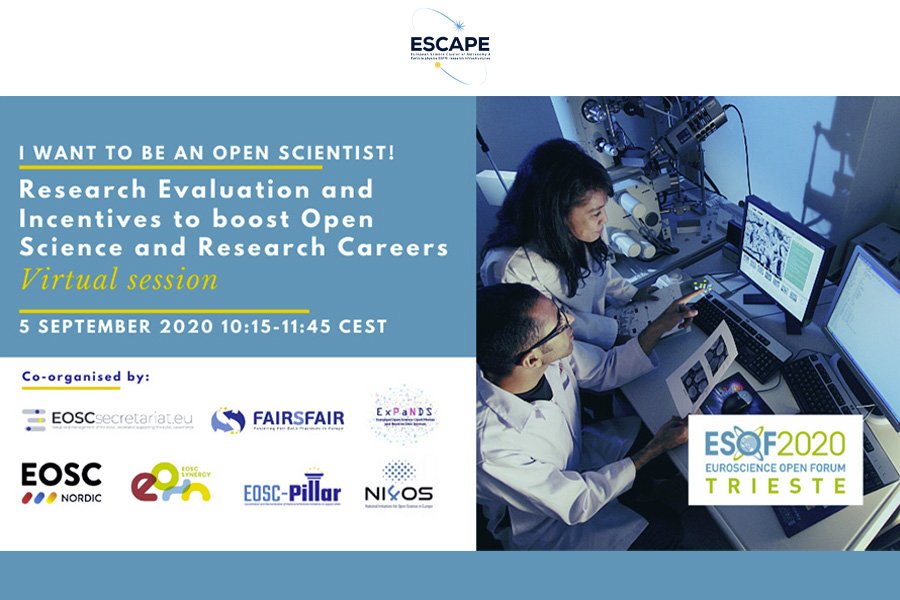
Sep 03, 2020 to Sep 03, 2020
|
Conferences & Events

Everybody is talking about Open Science and FAIR data but can you really make a living (and a good career) out of it?
Will my career get better if I FAIRify my data? Or will it just give me a headache? When someone will evaluate my research, will the fact that my data complies with all the Open Science best practices matter? Or am I just losing time I should rather spend publishing on whatever journal I can lay hands on? And where am I supposed to learn how to be fair and open anyway?
The right answer to these questions is crucial to the career choices and expectations of many students and young researchers, but it is also the point which can make the difference between succeeding or failing in establishing Open Science (and ultimately Good Science). To be able to shift the research evaluation system in Europe in order to produce quality and reliable data, to set up a working incentive system for individual researchers and organisations is one of the keys to the widespread uptake of Open Science and FAIR practices. And being so crucial a point, we believe that researchers, Research Infrastructures, scientific organisations should have a say in this.
During the ESOF2020 the Euroscience Open Forum, in September, it will take place an interactive session, organised by the EC INFRAEOSC-CALL-5 Projects, including EOSCSecretariat.eu, FAIRsFAIR, EOSC Pillar, EOSC Synergy, EOSC-Nordic, ExPaNDS, NI4OS, that aim at co-create the European Open Science Cloud, stepping from the Stakeholder Community needs.
The interactive session aims to present and discuss good ideas, innovative pilots and proposed policies from all across Europe.
The format will include mini TED from expert speaker to introduce the debate and audience contribution via World Café and/or using interactive tools depending on the number of participants.